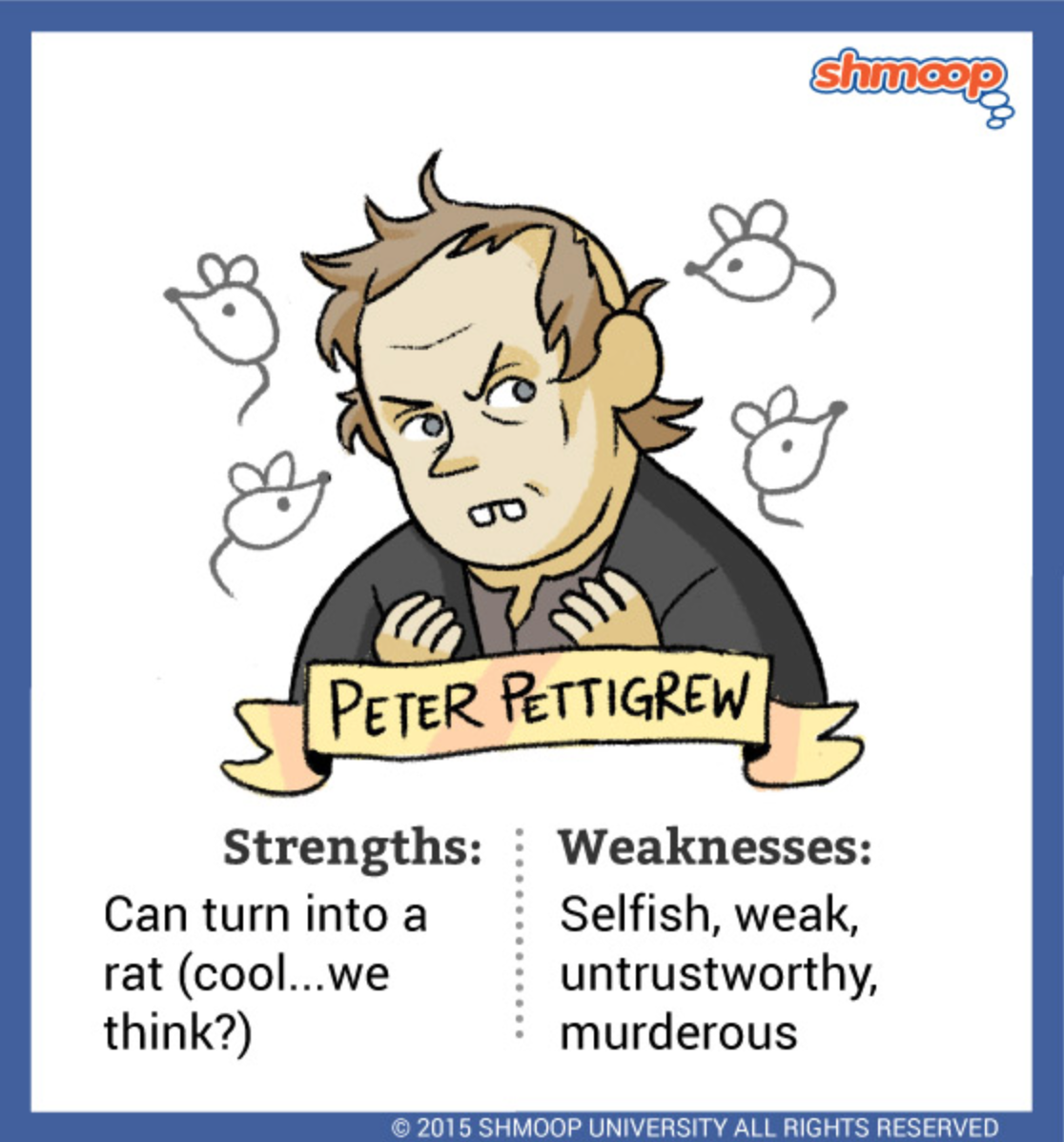Character Analysis

(Click the character infographic to download.)
Rat of Rats
We think that Sirius sums up Peter best, so we'll let him kick things off here:
"If you made a better rat than a human, it's not much to boast about, Peter," said Black harshly. (19.150)
That's for sure. Peter is definitely a rat – his Animagus form should have tipped everyone off a lot earlier. The guy is a coward and a traitor, he's pathetic and shameless, and he's pretty much morally bankrupt.
… Or Is He?
Reading about him just makes us shudder a little. But we have some mixed feelings about the guy, which is probably the point of this story. He's so pathetic that he inspires some sympathy, as well as total revulsion. It's a mixed bag here.
Before learning that Peter is Scabbers (one of the craziest revelations of all time), all the descriptions of Peter made him sound a bit like Neville Longbottom, something Harry actually picked up on in a nightmare he had (11.1.11). Peter was described as chubby and harmless and a bit foolish. He was a martyr whose grief over James and Lily got him killed. But, in reality, Peter was highly manipulative – he shouted out what he did in order to fake his own death and frame Sirius for the crime. Peter turned out to be a monster in sheep's (or rat's) clothing.
It's Complicated
In a way, he provides a valuable lesson – Peter was a bit of an outsider as a kid and grew up to be a weak man who caved to fear and pressure. So what's the lesson? Don't take people for granted, don't underestimate them, and don't dismiss them. Sirius dismissed Peter even as he made him a secret keeper – he insisted that no one would suspect the guy, that it was too ridiculous to assume anyone would pick Peter:
"I thought it was the perfect plan [...] a bluff [...] Voldemort would be sure to come after me, would never dream they'd use a weak, talentless thing like you [...]." (19.110)
Unfortunately for everyone, Peter made some really awful choices and turned into an bad guy. But his past makes us wonder if there was a way to have prevented his ultimate decision. In the end, though, the blame lies solely on Peter, who was selfish enough and cowardly enough to risk others' lives rather than his own.